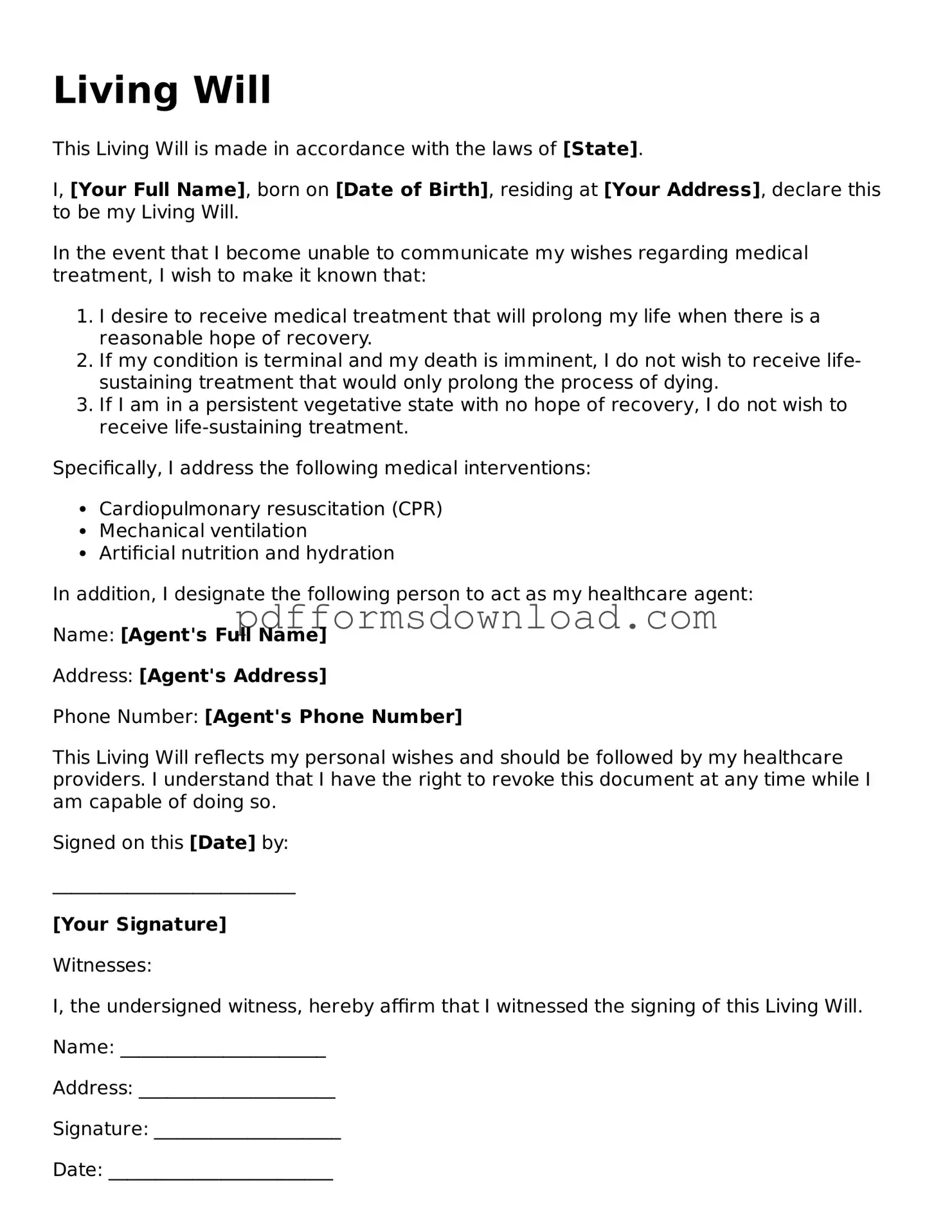What is a Living Will?
A Living Will is a legal document that outlines your preferences for medical treatment in situations where you may not be able to communicate your wishes, such as during a terminal illness or severe injury. It provides guidance to healthcare providers and your loved ones about the types of medical interventions you want or do not want, such as life-sustaining treatments.
Why should I consider creating a Living Will?
Creating a Living Will can relieve your family from the burden of making difficult medical decisions on your behalf. It ensures that your wishes are respected, even when you cannot express them yourself. This document can also help prevent potential conflicts among family members regarding your care.
Who can create a Living Will?
In most states, any adult of sound mind can create a Living Will. This typically means you must be at least 18 years old and capable of understanding the nature and consequences of your decisions. It's a good idea to consult with a legal expert to ensure your Living Will meets state requirements.
What should I include in my Living Will?
Your Living Will should clearly state your preferences regarding medical treatments. This may include your wishes about resuscitation, mechanical ventilation, tube feeding, and pain management. You can also specify any religious or personal beliefs that may influence your medical care. Be as clear and specific as possible to avoid ambiguity.
How is a Living Will different from a Power of Attorney for Healthcare?
A Living Will focuses specifically on your medical treatment preferences, while a Power of Attorney for Healthcare designates someone to make medical decisions on your behalf if you are unable to do so. Both documents can work together to ensure your healthcare wishes are honored.
Do I need a lawyer to create a Living Will?
While you do not necessarily need a lawyer to create a Living Will, consulting one can be beneficial. A legal expert can help ensure that your document complies with state laws and accurately reflects your wishes. There are also templates available online, but it's crucial to verify that they meet your state's requirements.
How do I ensure my Living Will is valid?
To ensure your Living Will is valid, you should follow your state’s specific requirements, which may include signing the document in the presence of witnesses or having it notarized. Keep copies of the document in accessible locations and share them with your healthcare provider, family members, and anyone designated as your healthcare proxy.
Can I change or revoke my Living Will?
Yes, you can change or revoke your Living Will at any time, as long as you are of sound mind. To make changes, create a new Living Will that explicitly states your updated wishes and ensure that all copies of the old document are destroyed. Inform your healthcare provider and family members about the changes to avoid confusion.
Where should I keep my Living Will?
Store your Living Will in a safe but accessible place. It’s advisable to keep a copy with your healthcare provider and give copies to trusted family members or friends. Some people choose to carry a card in their wallet indicating that they have a Living Will and where it can be found.

